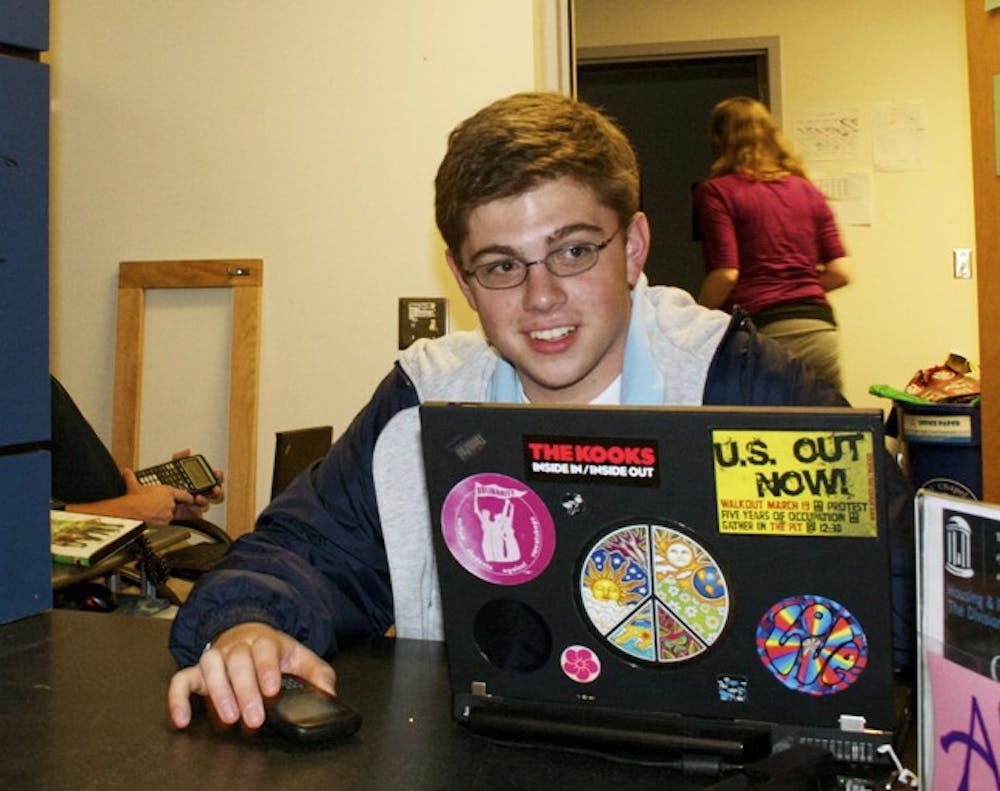After school, Crosa visited the emergency room at Mission Hospital in Asheville where doctors were stumped as to why Crosa was having involuntary tics.
The doctors referred Crosa to Emory University Hospital in Atlanta, but doctors there were still unable to diagnose the problem.
It was only after five months of working with doctors at the National Institutes of Health in Bethesda, Md., that Crosa was finally diagnosed with Tourette syndrome.
“When I actually found out I had Tourette syndrome it was really relieving,” Crosa said.
Waiting for a diagnosis wasn’t easy for Crosa’s family.
“It was very scary,” said Melissa Robinson, Crosa’s mother. “They were talking about whether it was brain tumors.”
But Crosa said he was happy with his family’s reaction and appreciated their support.
Because he developed Tourette’s so late in life — Tourette syndrome is usually diagnosed at a younger age — Crosa said he had to find a way to reconcile an identity he had already developed with a disorder that would affect his future.
“I very much felt like I was Michael and Tourette’s was tacked on,” Crosa said.
This difficulty manifested itself during Crosa’s resident adviser training his sophomore year at UNC.
Each RA was asked to list 10 personal characteristics and then cross several off at a time, leaving each with the one characteristic that supposedly described them best.
Crosa was left with the word “Tourette’s.”
To get the day's news and headlines in your inbox each morning, sign up for our email newsletters.
“It was the first time I had really cried about it and I bawled about it,” he said. “It was a big emotional moment for me.”
But Crosa said that after this emotional breakdown, he was able to come to terms with his Tourette’s.
“I feel like I’ve really accepted it,” Crosa said. “I’m Michael who happens to have Tourette’s, as opposed to Michael plus Tourette’s.”
Now one of Crosa’s goals is to educate himself and others about Tourette syndrome.
People are more accepting of the disorder when they understand it, Crosa said. He said this makes him less self-conscious.
“He’s very, very open about it,” said Daniel Stellini, a first year graduate student and friend of Crosa.
Learning about Tourette’s has also helped Crosa learn to partially control his tics.
“One of the biggest treatments for Tourette’s is education,” he said. “The more that you know about it, then the more likely you are to be comfortable and understand what’s going on.”
Another treatment for Tourette’s is music — something Crosa has been passionate about since the sixth grade.
“If someone is playing an instrument, they won’t have a tic or they will have a lot less tics,” Crosa said.
Crosa is a percussionist in his music classes, but his favorite instrument to play is guitar, he said. Growing up, he played the guitar with his father.
This past summer, Crosa worked at Camp Twitch and Shout, a camp for children with Tourette syndrome, where he was a music instructor. He led drum circles and other music-related activities for campers.
“I discovered music therapy and that’s something that I want to go into,” he said.
Crosa sees his Tourette’s as a building block, not an impediment, he said.
“I feel like I’ve used Tourette’s to improve myself and improve my life goal and life direction,” Crosa said.
People around Crosa notice his positive attitude regarding Tourette syndrome.
“I have honestly never seen him get frustrated about it,” said Jillian Dahl, a sophomore psychology major who became friends with Crosa her freshman year.
Robinson said she is proud of all that Crosa has accomplished and his plans for the future.
“He had the option of withdrawing from school and he didn’t choose to do that,” she said.
“I just think it’s really amazing the way that he handled it.”
Contact the University Editor at udesk@unc.edu.




